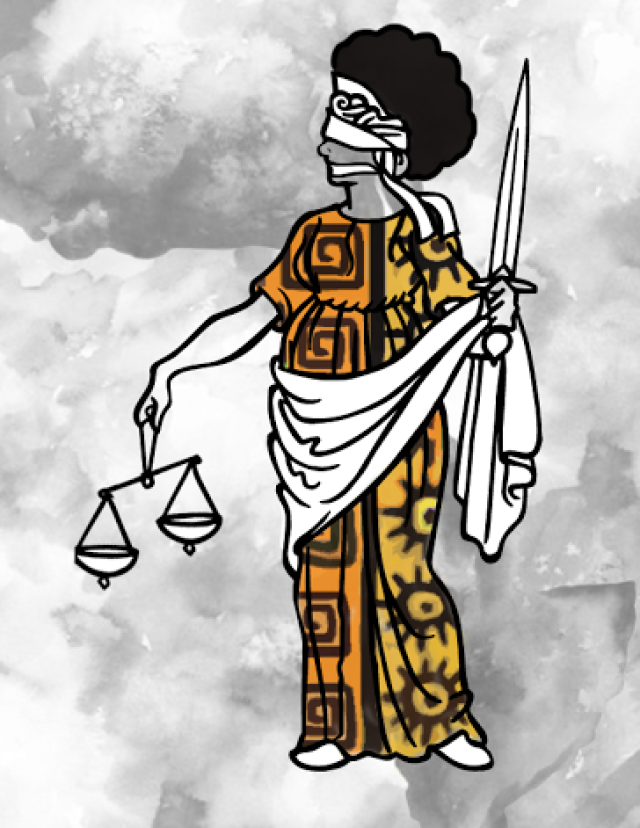
The 1991 Colombian Constitution is supposed to ensure the protection of all Colombian peoples’ rights and common interests. But in March, those whose role and responsibility it is to ensure the constitution is enacted turned a blind eye to the blatant political misconduct and unethical activities of the Black Colombian Foundation (FUNECO).
FUNECO won both congressional seats allocated to Colombia's Black and Afro-Colombian community with two candidates, Maria Del Socorro Bustamante and Moises Orozco Vicuna, who are not Afro-descendants, or even black-skinned.
Their alleged political affiliations are aligned more with drug traffickers and paramilitaries than anything to do with the 500-year struggle of the Afro-Colombian.
On March 17, a small group of Afro-Colombians staged a protest against those chosen to “represent them” outside of the headquarters of the Electoral Register.
If the election results stand, the next four years will mean the already poorly represented Afro-descendant communities will be without a voice.
FUNECO is a political party that states its objective is the “promotion, reclamation (and defense) of the territorial, cultural, economic, political, social and environmental rights and participation of the autonomous black and Afro-Colombian communities”.
But it is difficult to see how its two candidates could do that — given their all too frequent ties to extremist groups existing outside the law.
It is equally difficult to imagine how, without substantial corruption, Orozco and Bustamante managed to obtain 13,249 and 34,067 votes respectively, from what should have been a Black vote. They are not even mentioned on the party website.
Orozco, a lawyer by profession, was denounced by two members of the political party Radical Change, Abraham Jimenez and Congressman Fernando Vargas, in 2010. It came after death threats made when both Orozco and Vargas were pre-candidates for the position of Mayor of Yumbo. Vargas was assassinated just 10 months later.
The 2010 accusations also highlighted Orozco’s meetings with one of the two notorious narco-trafficking brothers, Luis Enrique and Javier Antonio Calle Serna (also known as the Comba brothers).
The Foundation for Peace and Reconciliation also make such claims in their recent publication on electoral risks. Orozco is also heavily backed by Yair Acuna, who is accused of being part of paramilitary politics.
Bustamante, meanwhile, has tried to represent various political parties in Colombia. Radical Change refused to let her stand as a member of their party due to her previous involvement in atypical elections when she ran for the Mayor of Cartagena.
She is also linked to Enilse Lopez, who is serving time in prison for her connections with and part in a murder committed by paramilitaries.
Prior to the elections, the party was questioned about its selection of Bustamante and its failure to adhere to its responsibility to only put forward candidates that come from or who have worked with, the Afro-Colombian and Black community.
The failed political participation of the Afro-descendant communities bears resemblance to the Australian Government’s inability to suitably tackle the plight of their own indigenous communities. Those who shout the loudest often have the most support but that does not mean they are right.
A case in point is ex-Colombian president Alvaro Uribe, busy making a song and dance about the “lost count” of about 250,000 votes, which would have made his newly created right-wing party, Democratic Centre ― Firm Hand, Big Heart, overall election winners.
So far this is no evidence of fraud, wrongdoing or outright corruption in regards to his party, but Uribe is determined to make his voice heard on every right-wing media outlet ahead of the eagerly awaited official count.
Uribe should also acknowledge his own party’s flirtation with corruption, given the 1316 votes registered for his party in areas where no Democratic Centre option appeared on the ballot paper. Such votes were not large enough to affect the result, but it still raises the question of where they came from.
That said, what requires a far greater explanation and an altogether deeper look into the collective Colombian conscience is how and why even the smallest of the nation’s voices were officially silenced.